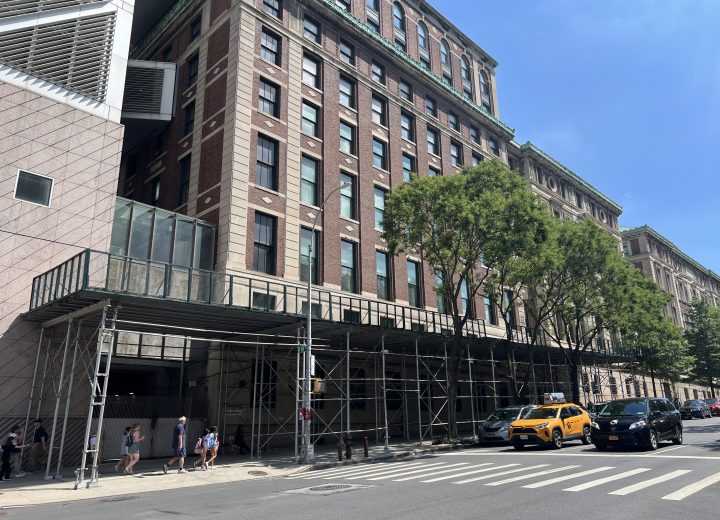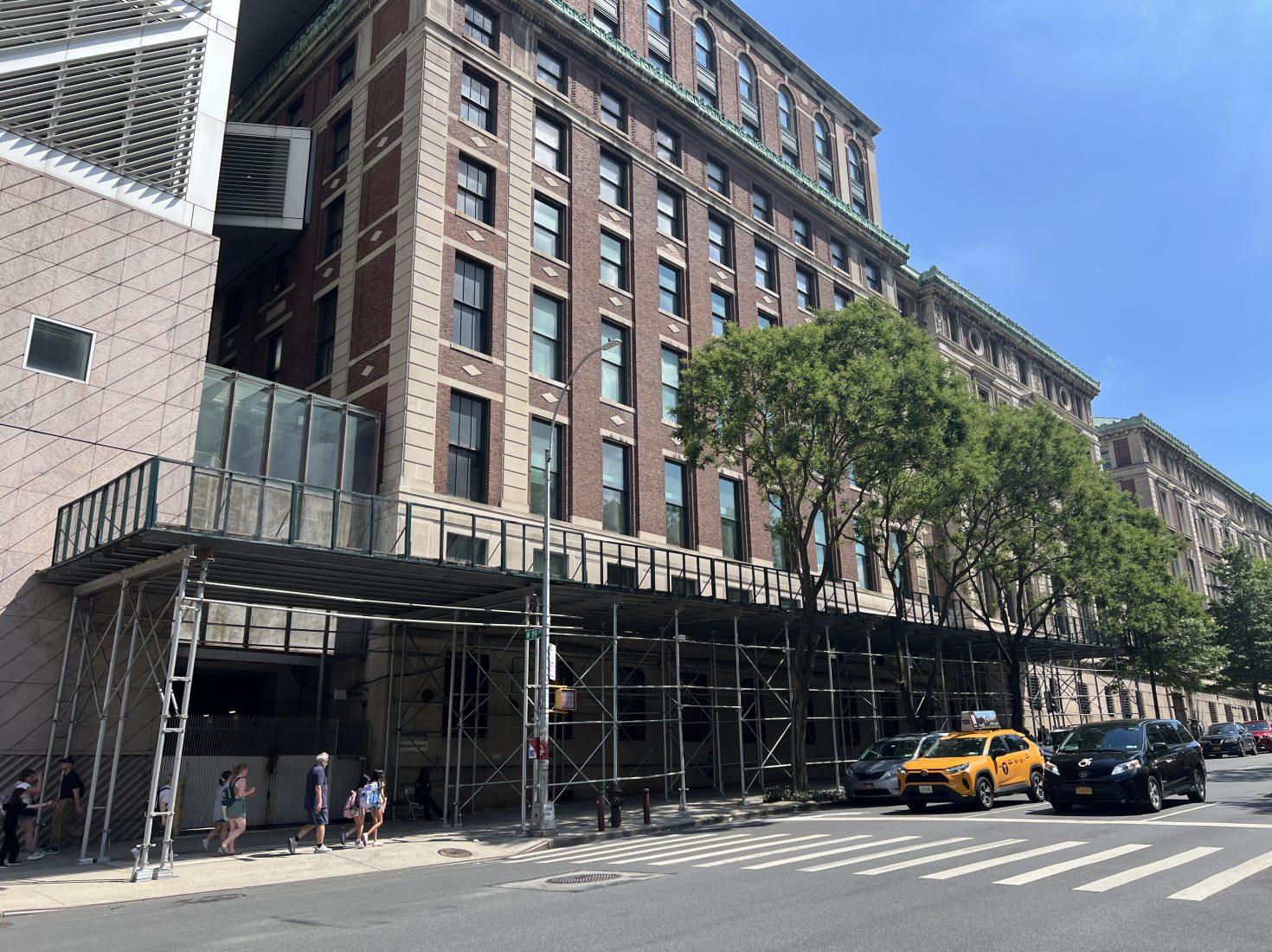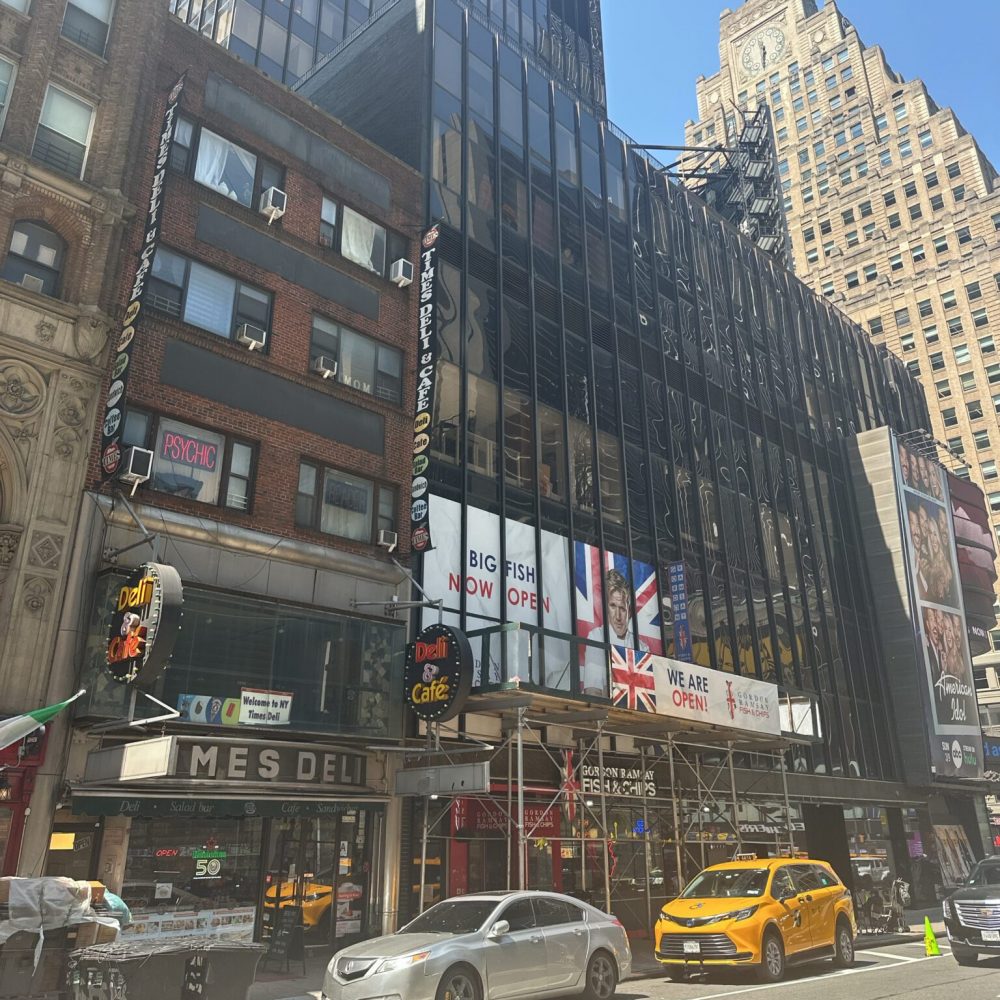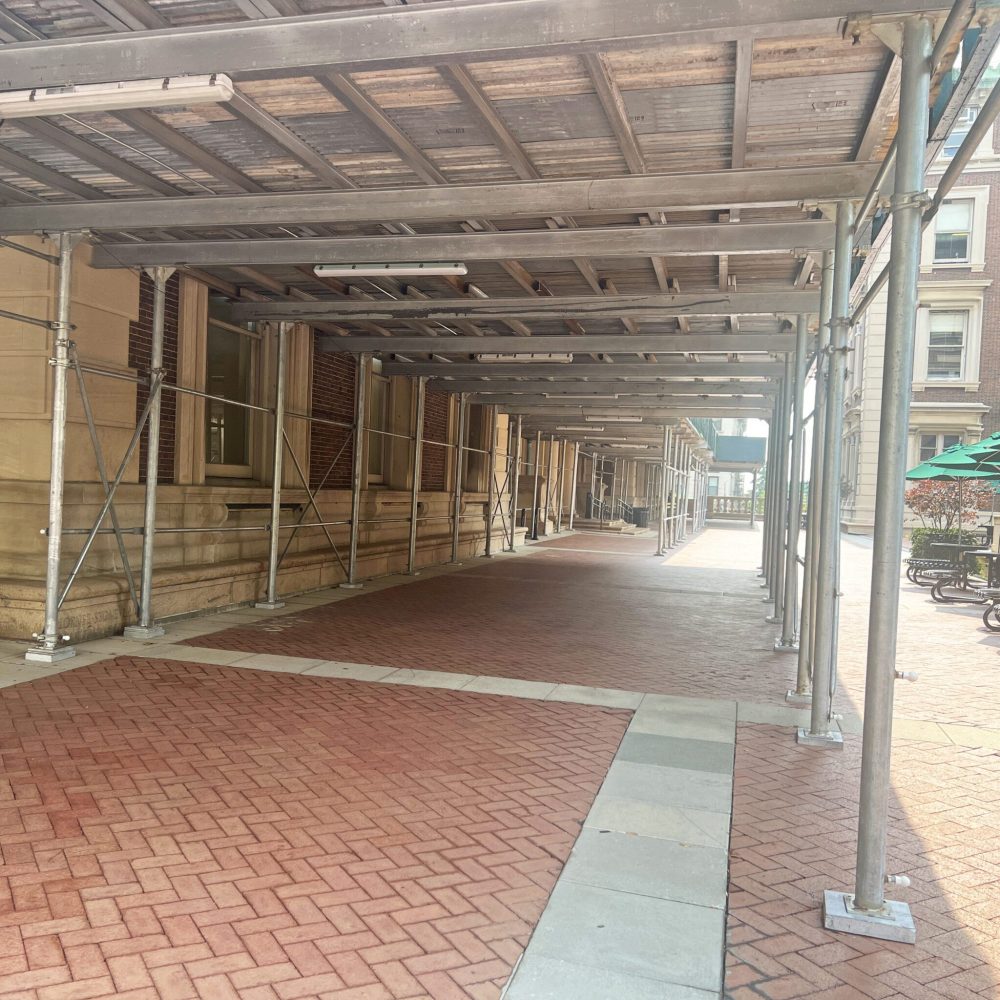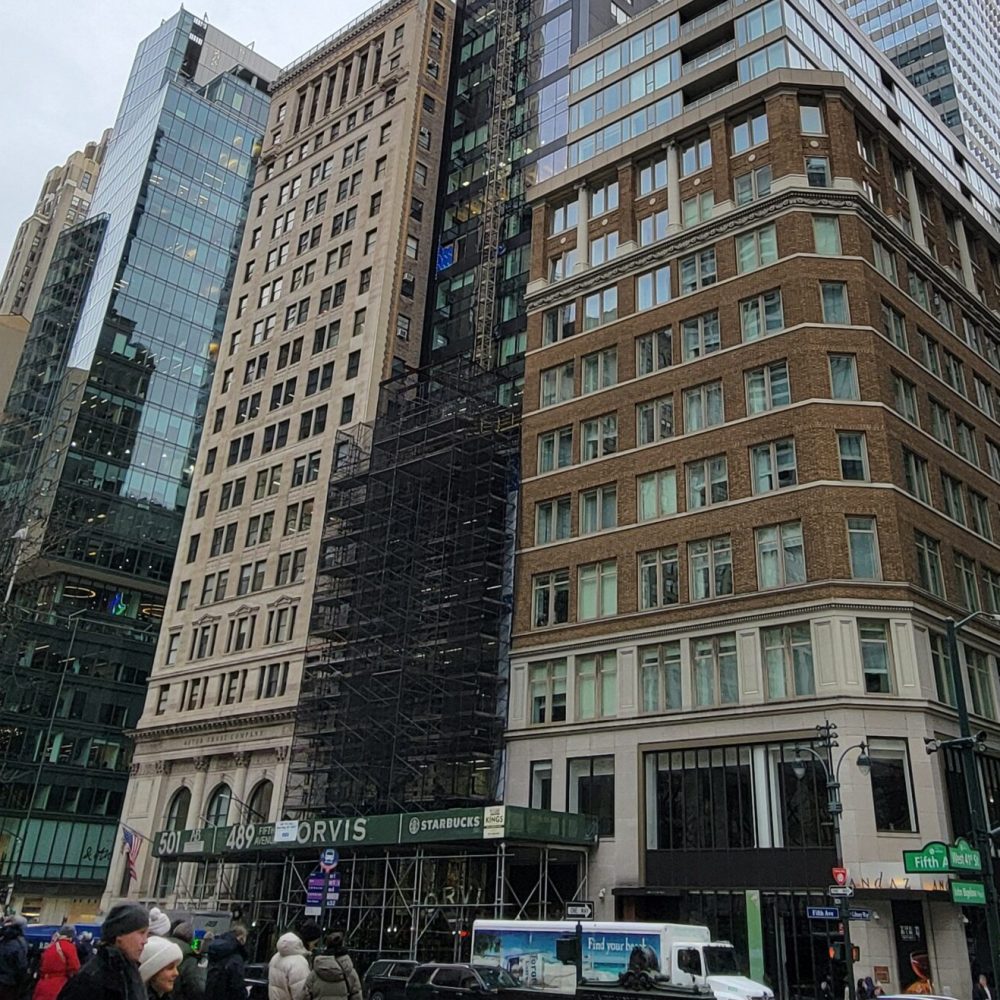Update on the NYC Facade Inspection and Safety Program (FISP)
New York Gets Serious about “Get Sheds Down”
New legislation impacting the structure and implementation of FISP, New York City’s exterior wall safety program, forecasts significant changes to the timeline of critical examinations and brings stricter enforcement of prompt facade repairs.
| Key Takeaways |
| Earlier this year, Hoffmann issued an update on Cycle 10 of the New York City Facade Inspection and Safety Program (FISP), also known as “Local Law 11.” Now, new Local Laws targeting sidewalk sheds impose even more severe penalties for failure to repair facade problems promptly. Plus, the City has initiated a study that may result in longer FISP cycles and, the hope is, fewer sidewalk sheds. The highlights: |
| Owners may face substantial penalties for leaving sheds up without making repairs. |
| Once a shed goes up, owners will have just a few months to file construction documents and apply for a work permit, and only two years to complete repairs. |
| Sidewalk shed permits will be limited to 90 days. To renew, a design professional must file a report showing that work is underway. |
| Changes to sidewalk shed design requirements may increase costs. |
| While the FISP cycle is unchanged for now, in future cycles the period between critical examinations may extend to six years or even as much as twelve. |
Local Law 51 of 2025: Effective 12 January 2026, nearly a year into FISP Cycle 10, new penalties will be assessed for failure to complete facade repairs in a timely manner. Part of the “Get Sheds Down” legislation package (Local Laws 47-51) that targets New York’s ubiquitous and unsightly sidewalk sheds, this law aims to encourage prompt resolution of needed repairs and thereby shorten the duration that sidewalk sheds are in place. Penalties of between $5,000 and $20,000 will be imposed on owners who leave sheds up but fail to take action to resolve unsafe facade conditions. Once a permit for a sidewalk shed in a public right-of-way is issued, the owner has just five months to file construction documents, eight months to file an acceptable work permit application, and two years to complete repairs before hefty penalties are levied. These new fines are in addition to existing FISP penalties.
Local Law 48 of 2025: As with Local Law 51, these changes go into effect on 12 January 2026 and impose penalties for sidewalk sheds in a public right-of-way. Sidewalk shed permits will no longer be issued for two years but will be limited to just 90 days. While these permits may be renewed, beginning with the second renewal, owners must demonstrate that work is underway to address the facade condition for which the sidewalk shed was erected. A registered design professional must submit a report to the New York City Department of Buildings (DOB), documenting that work has been performed since the last permit renewal and that construction is still ongoing. (Exemptions for financial hardship and issues with access to materials or properties are accepted but must be documented by the design professional.) If work is not in progress, owners are liable for penalties of between $10 and $200 per linear foot of sidewalk shed per month, increasing the longer the shed is in place. Sidewalk shed permits cannot be renewed until these penalties are paid.
Local Law 47 of 2025: While this law primarily directs the DOB to evaluate options to improve sidewalk shed design, more important for building owners is the increase in minimum clearance beneath sidewalk sheds from eight feet to twelve, which is likely to raise the cost of installation. That portion of the law took effect on 15 August 2025, so owners will see the impact in this FISP inspection cycle. Brighter LED lighting beneath sheds is mandated here and in Local Law 50, which may also increase costs. To further limit sidewalk shed use, containment netting will now be permitted in place of sheds for areas with no public access.
